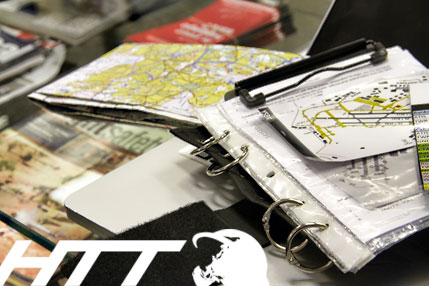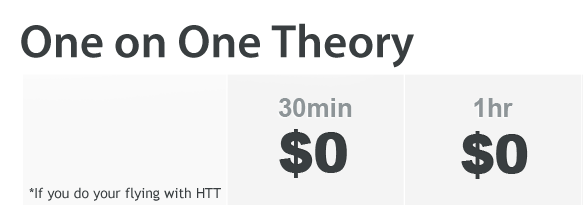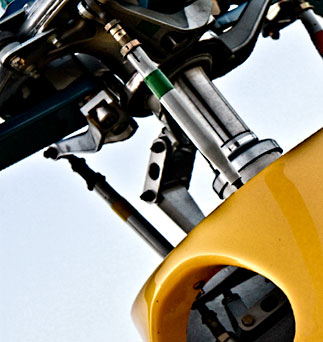Commercial Pilot's Licence - Helicopter
CPL Licence gives you the opportunity to be employed as a helicopter pilot. At HTT its our job to train you to become a professional helicopter pilot. Our philosophy is that training should be done right the first time in a way most suited to your style of learning.

Becoming a Commercial Helicopter Pilot

To launch your career and enter the profession of being a helicopter pilot, you must first obtain the helicopter commercial pilot's licence. You must pass comprehensive theory exams and a flight test, which is completed after a minimum of 105 hours. Also, all along your training (should it be full time or part-time) your competency will be assessed as to achieve the standards set in the CASA Day VFR syllabus. This syllabus provides training and skills required for the issue of an Australian Commercial Pilot Licence (Helicopter). The Commercial Pilot Licence (CPL) allows you to act as pilot in command of some commercial operations. Flying is one of the most challenging and rewarding careers there is. A career as a professional helicopter pilot can offer a great sense of fulfilment. However the helicopter industry just like the general aviation is very competitive. Once you get your commercial pilot's licence, you might begin your career as junior instructor or charter pilots flying single-engine aircraft in regional areas. As you gain more experience and qualifications, you then have the chance to fly larger, more advanced aircraft. So, you will have to build up your hours before you can tackle specialised flying operations. Which is why prospective commercial pilots should not expect to walk straight into a lucrative position and should be prepared to committing to a long-term rewarding flying career with the determination in order to overcome the initial obstacle of getting started as a low-hour pilot.
The skills demanded of a professional pilot include not only the ability to physically control the aircraft but also to make correct decisions in complex situations where time is a critical factor. In addition, pilots must take ultimate responsibility for the safety of all those who fly with them.
Though the amount of training required can appear daunting at first, remember that your goal is achievable, provided you have the dedication necessary to pursue your love of flying. At HTT we take care of our staff and students. We will make a package that is suited for you and your lifestyle - helping you achieve your flying goals is what we are here for.
HTT Training Philosophy

Because each individual is different in their rate of learning and their way of studying, our one-on-one training offers the flexibility to learn at your own pace while your instructor carefully follows your progress throughout your flying stages and provides valuable directions and dedicated personal support in guiding your self-study of aeronautical knowledge. We regard our students as individuals and we have therefore developed our own one-on-one training plans.
Our training philosophy allows more time for student practical lessons: up to 3 hours per 1 hour flying period. This way, we can offer a better learning environment by preventing rushing, stress and information overloading. Our instructors are time-committed to give our students the guidance and orientation required to best assimilate the theory knowledge programme.

Should you experience any difficulty or problems in your studying, do not hesitate to ask your instructor for help.
Do not wait until you have to sit an exam. Your flying instructor is also your theory instructor. Our instructors are available at all times to give you a personal theory support as required to see you achieve passes on your exams.

Theory Exams
Flying School knowledge tests are:
Flight radio operators licence (theory and practical). Pass mark 80%.
Helicopter Endorsement. Pass mark 80%.
Pre-solo air legislation. Pass mark 80%.
First area solo. Pass mark 80%.
All the above must be completed before students are authorised for their first solo flight.
And:
Basic Aircraft Knowledge. Pass mark 80%
To be completed before students progress to flight test recommendation.
CASA cyber-exams are:
Aircraft general knowledge
Helicopter aerodynamics
Flight rules and air law
Human factors
Meteorology
Navigation
Operations, performance and planning
All of the above must be completed before students are authorised for their CPL flight test.
Aeronautical Knowledge

There is a theory behind a practice and this knowledge is the foundation of your flying training.
Whereas theory first seems to only be dealing with the principles of flight, helicopter aerodynamics stands as one of the seven subjects to be studied in order to pass the theory exams and meet these requirements prior to the conduct of the CPL flight test. So the aeronautical knowledge is more than a required knowledge to pass the theory exams. Some essential knowledge is required to ensure the safety of an aircraft and its occupants and therefore it should be learn at an early stage of your flying. Some important knowledge is required for practical operation of an aircraft and therefore it should be learnt at a particular time of your flying where it can be related to your flying exercises.
Our point is for you to build-up an aeronautical knowledge that you will be able to rely on when flying solo and in the long run. Some knowledge of course has to be learnt by heart as there is no way around the air legislation, and some knowledge has to be understood. In addition, there is also a necessary knowledge required at a professional licence level that will be learnt at the last stage of your flying.
There are seven theory subjects to study as per the aeronautical knowledge syllabus detailed on this page.
In this view, we recommend that you use our theory course package which includes 4 binders or volumes and other study materials such as the legislation publications and which all together covers all of the seven theory subjects. These theory books and materials will represent your study resource and where to look when having to learn particular items of knowledge in relation to your pre-flight knowledge and post-flight study.
Also, particular use will be made of pre-recorded briefings on videos as well as videos encompassing items of general interest and aviation safety. Such videos are intended for student revision and reinforcement of information, and may be viewed in conjunction with printed summary sheets.

One-on-One Training Plan
You will receive a detailed Mass Briefs Handbook including lessons with specific learning outcomes and theory briefs.
This flying lessons handbook is a progressive series of Air Exercises in which the helicopter pilot is required to be proficient (the air exercises are listed under main titles). The initial flights will be confined to a particular exercise but as your flying training progresses revision on previous exercises will be done as well as introduction to more advanced exercises. The main considerations of each exercise will be stressed during full and pre-flight briefings. The principles of flight are discussed in this handbook under several Theory Briefs. The information given in this handbook, together with ground school instruction, is the foundation upon which your instructor will base your helicopter flying training.
We understand that you have a busy schedule, this is why we make sure that you can book one-on-one training sessions in one of our private briefing rooms. Classroom learning does not get more personal than this.
Each flying lesson or sortie follows a structured one-on-one training plan as explained below:
Pre-flight Knowledge
At HTT we believe that Preflight and Postflight briefs are essential to any training flight. This is why they are free, always
This is the preparation phase before undertaking a flying sortie. Your instructor will point to you which elements of aeronautical knowledge should be learnt as an underpinning knowledge to a particular air exercise or as a relevant knowledge of importance according to your flying stage (pre-solo, post-solo, general flying phase, PPL level and CPL level). For example, on your first sortie 'Air familiarisation and Effects of Controls' you should be aware of several air legislation about a pilot's fitness and health and therefore take the good habit of asking yourself throughout your flying training: "Am I safe for flying?" The pre-flight knowledge is the foundation upon which your instructor will base your helicopter flying training.
Full Briefing
The full briefing is given before each new exercise is taught in the air. As the name suggests this briefing covers the subject in detail. During this briefing the knowledge learnt during your self-study pre-flight knowledge is linked to the practical and safety aspects of flying. We believe our lesson briefs are a vital role in making you a safe pilot. We have structured over an hour of time (or even more) to spend with you to fully explain your sortie with your instructor.
Pre-Flight Briefing
Pre-flight briefing is given just before each flight. As well as including a resume of the main points of the air exercise, the briefing will also cover details which will affect the conduct of the flight, namely weather, airfield state and air traffic control.